A non-U.S. citizen may acquire U.S. citizenship by birth in the U.S., or at birth if the child is born abroad to U.S. citizen parent(s), if certain conditions are met or by naturalisation. In this article, we discuss acquisition of U.S. citizenship at birth (transmission) for a child born abroad to U.S. citizen parent(s) who are married to each other.
To be eligible to acquire U.S. citizenship at birth through transmission, the following requirements must be met:
- The U.S. citizen parent(s) or the non-citizen spouse must be a genetic parent of the child born abroad to transmit U.S. citizenship to the child.
- Parents must be legally married to each other
- at the time of the person’s conception or
- at the time of birth, or
- the child should be born within 300 days of the end of the marriage by death or divorce.
- Either the U.S. citizen parent(s) or the foreign national spouse must be a genetic or gestational parent of the child to transmit U.S. citizenship to the child at birth.
Child Born Abroad in Wedlock to Two U.S. Citizen Parents
A person born abroad to two U.S. citizen parents in wedlock acquires U.S. citizenship at birth under section 301(c) of the Immigration and Nationality Act (INA), if at least one of the parents had a residence in the United States prior to the person’s birth. In these cases, at least one of the U.S. citizen parents must have a genetic connection to the child to be able to transmit U.S. citizenship to the child.
Child Born Abroad in Wedlock to a U.S. Citizen and a Foreign National Spouse
Pursuant to INA 301(g), if a person is born abroad while the parents (a U.S. citizen and a foreign national) are considered to be in wedlock, then the child will acquire U.S. citizenship at birth if the U.S. citizen parent has maintained residence in the U.S. before the child’s birth for the duration required by the statute in effect when the person was born. In such cases, a person’s ability to acquire U.S. citizenship at birth will depend on the existence of a genetic link between the child and either the U.S. citizen parent or the foreign national spouse.
Residence Requirement for Child born on or after November 14, 1986
If the child was born abroad on or after November 14, 1986, the U.S. citizen parent must have been physically present in the United States or one of its outlying possessions for a minimum duration five years prior to the child’s birth. Out of these five years, at least two must be after the age of 14.
Residence Requirement for Child born prior to November 14, 1986
If a child was born to a U.S. citizen parent between December 24, 1952, and November 13, 1986, then, the U.S. citizen parent must have been physically present in the United States or one of its outlying possessions for a period of 10 years prior to the child’s birth. Out of these 10 years, at least five years of residence must have been after the age of 14 for the parent to be able to transmit U.S. citizenship at birth to the child.
In both these cases, either the U.S. citizen parent or the foreign national spouse must have a genetic or gestational connection to the child in order for the U.S. citizen parent to transmit U.S. citizenship to the child. It is also important to understand that the parent need not have been a U.S. citizen to meet the residency requirements. For example, if a parent lived in the U.S. pursuant to H1B or F1 status for the 5 years, out of which 2 years were after the parent’s 14th birthday, and later the parent naturalized as a U.S. citizen, the physical presence in the U.S. on F1 or H1B status will be considered to meet the residency requirements. The parent need not have been a U.S. citizen when s/he fulfilled the physical presence requirement required under this section of the Immigration and Nationality Act (INA).
More information on this topic can be found here.
For children born abroad, the parents will have to first register the child’s birth abroad (known as Consular Registration of Birth Abroad – CRBA) and apply for a U.S. passport. More details on this process can be found in this article published earlier.
